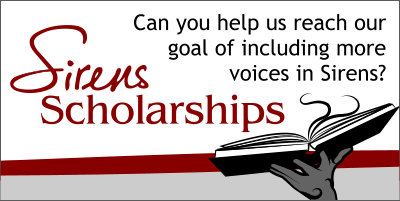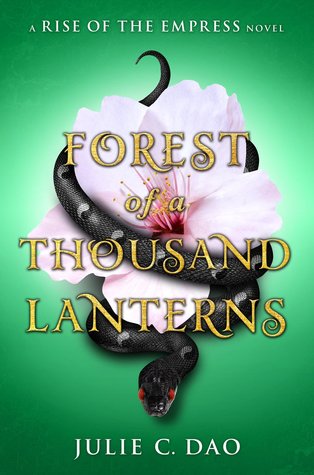Sirens programming is the dozens of hours of papers, lectures, panels, roundtable discussions, workshops, and afternoon classes that make up the heart of Sirens. For our 2018 programming series, we’re doing a deeper dive on each presentation format; this information will both help potential presenters select the proper format for their approach to their topic and provide details on proposal requirements. We also suggest that potential presenters read how Sirens programming works and our tips, tricks, and frequently asked questions. Earlier this week, we reviewed papers/lectures and panels; we’ll review workshops/afternoon classes later this week. You can submit a proposal any time from April 2 to May 6.
At Sirens, roundtable discussions are moderator-led conversations among an audience of roughly 25 people. These presentations approximate college discussion sections, and because of this format, are best suited to topics where everyone in the audience is likely to have something to contribute. A discussion of reading practices, a debate over effectively retold fairy tales, or a conversation on sex in young-adult fantasy literature would all be great roundtable topics.
Roundtable moderators will lead the discussions through a series of questions and will be responsible both for facilitating the conversation and keeping the audience on track. Moderators who wish to tackle an esoteric topic or convey their research, analysis, or viewpoint should strongly consider presenting a paper or lecture where their knowledge can shine, instead of a roundtable discussion—here, it’s essential that the audience not need an introduction to the topic.
Roundtable discussions may have only one presenter. Since the moderator is the facilitator in a roundtable discussion, we limit this presentation format to only one presenter.
Roundtables are always 50 minutes long. Presenters should plan enough questions to fill the entire time. As audience participation is the heart of this presentation format, presenters need not save time specifically for audience questions.
Proposal requirements include a presenter biography (50–100 words), a presentation summary (50–100 words), and a detailed abstract (300–500 words). We will publish the biography and the summary on our website and in our program book to help attendees navigate our programming and decide which presentations they’d like to attend. The abstract is for the vetting board. It should explain your topic and approach to the vetting board and be far more in depth than your summary. Roundtable abstracts may be in the form of a series of at least ten questions (with appropriate follow-up questions), rather than a more traditional paragraph format, if the presenter prefers.
Room set-up includes tables and chairs arranged in a square or U-shape. As the rooms hosting roundtables are small, no audio-visual equipment will be provided. However, a small white board or an easel will be available.
Looking for help or inspiration?
-
Join us for a programming chat!: Anyone interested in submitting a proposal can stop by to brainstorm, find collaborators, and get one-on-one advice from our programming staff. They don’t make the selection decisions, but they’re full of thoughts that might be helpful! Chat will be held here at the following times:
Saturday, April 7, 1–3 p.m. Eastern (10 a.m.–noon Pacific)
Tuesday, May 1, 9–11 p.m. Eastern (6–8 p.m. Pacific) -
Find a mentor!: As a new initiative this year, we’ve asked some past Sirens presenters to be available as mentors for new folks submitting programming proposals. They’re available to share information on the Sirens audience, review your research and arguments, and help you craft your proposal itself. If you’re interested, please email Amy at (amy.tenbrink at sirensconference.org) to get connected.
-
Free Topics: All through April, we’ll be tweeting programming topics that are free for you to take, develop, and use in your programming proposal. You might take them as is, you might use them as inspiration, or you might find that they get your brain moving! Follow us on Twitter @sirens_con or check out #SirensBrainstorm.
-
More Questions: Email us! You can contact our programming team at (programming at sirensconference.org).
Examples of summaries of past roundtable discussions from Sirens:
-
Can You Go Home Again?: Fantasy, Re-Reading, Childhood Favorites, and Nostalgia by Faye Bi: This roundtable will explore the transformative joy of re-reading an old favorite, as well as the flip side of discovering that a beloved book is no longer a favorite. With influence from Jo Walton’s and Laura Miller’s ideas on re-reading, we’ll delve into the books read long ago and see how time, successive reads, and reading companions change our relationships with them.
-
Female Game-Changers by Sherwood Smith: Let’s talk about heroines as catalysts in revolutions. Not all heroines are battle commanders, though we can take time to appreciate the ones who are. Many begin with little besides their wits and skills. Some have special gifts, some do not. Some are born to rank, others are outsiders in various ways. In this roundtable discussion, we will talk about the different ways heroines in genre literature bring about change.
-
Queer-Coding and Queer-Baiting by Kate Larking: Queer-coding, when a character is given traits commonly associated with queer people but not explicitly stated as queer, has been present in fiction media for some time. A more recent narrative evolution is queer-baiting, where implied sexual tension or character dynamics are constantly and frequently thwarted, leaving a promise of queer representation that isn’t, ultimately, fulfilled by the canon. Join in on a discussion of queer representation in media, subtext and canon, and the impacts on both fiction tropes and queer identities.
-
The Socioeconomics of Magic: Correlations Between Class Structure and Use of Magic in Fantasy Narratives by Emma Whitney: In the struggle for power that constitutes the plot of many fantasy novels, magic is often the primary tool. This use of magic generally confers a particular social status to the user. Frequently, especially in classic “epic” fantasy, this is an elevated status, but that is not always the case. In this roundtable we will discuss how magic is used to reinforce or break down social structure, and what this might say about how we view class distinctions.











Connect with the Sirens community
Sign up for the Sirens newsletter